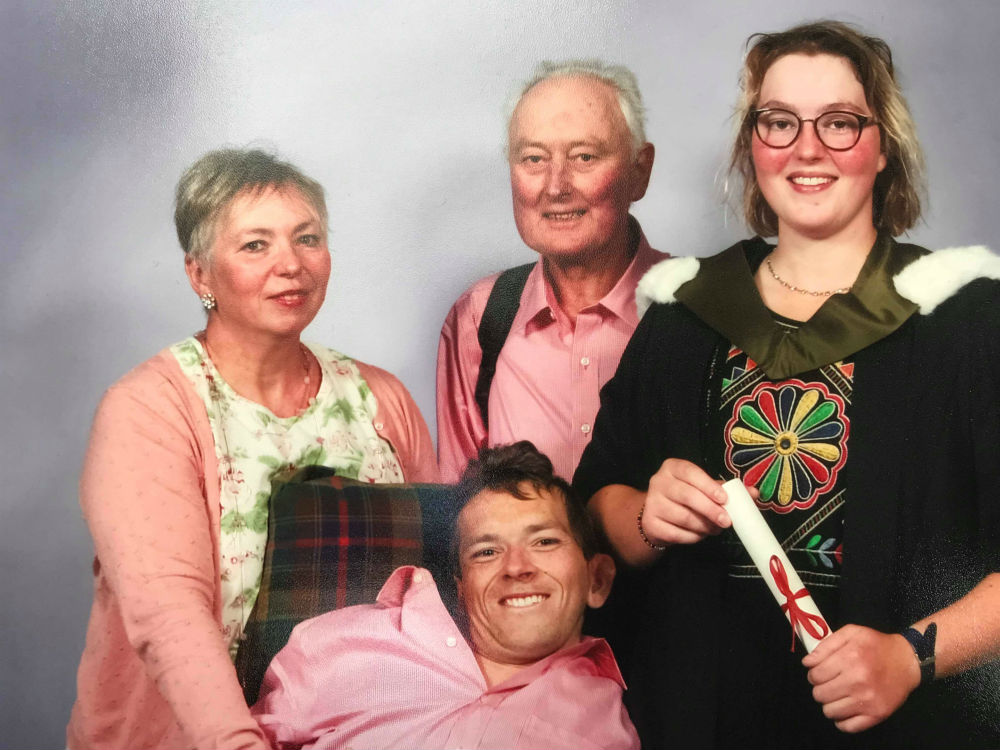A TERMINALLY ill Scot was forced to wait six hours for an ambulance – before being left in A & E cubicle for a further eleven hours.
On top of that, Frank Imrie then had to wait another three hours for an “urgent” ambulance to transport him from one hospital to another, just five miles away.
The 68-year-old from North Berwick, East Lothian suffers from respiratory problems and was told by a GP two weeks ago to call an ambulance.

After waiting six hours for the ambulance, Mr Imrie arrived at the Edinburgh Royal Infirmary at 6am – where he was ushered into a cubicle for eleven hours.
Mr Imrie, who requires 24/7 oxygen and uses a ventilator to help him breathe, turned to his wife Fiona Imrie and said: “Do I really deserve this?”
Eventually at 5.15pm, a tea lady noticed Mr Imrie had been waiting for a long time and called on a doctor who said: “I believe you have been waiting here for a long time.”
Three hours later, an urgent “one-hour” ambulance arrived to transport Mr Imrie five miles away to the Western General Hospital where he was finally given antibiotics at 11pm.
Mr Imrie’s wife Fiona has now blasted the service, saying “improvements need to be made”.
The Scottish Ambulance Service today apologised to Mr Imrie and his family for the delay.
Speaking today (wed), Mrs Imrie, 54, said: “It took six hours for an ambulance, that was supposed to take 1-2 hours, to arrive.
“We received five phone calls on the hour to say they were experiencing delays.
“The last time we spoke to a clinical advisor where I told them that my husband’s condition had deteriorated.
“We arrived at Edinburgh Royal Infirmary at six o’clock in the morning where there was about six people in the waiting room. They were quick to take a blood sample, and to do a CT scan.
“A tea lady came and spoke to us and said ‘you’ve been here a long time has anyone seen you?’
“No one has seen to us a for a while.”
“The tea lady replied: ‘I’ll go get someone’.
She added: “The staff are under a lot of pressure, and at times can’t cope, but things could improve.
“People with complex and log-term conditions who are known to the departments within the ERI such as my husband with the respiratory unit should be referred directly to them rather than be put through A&E with people who have a sprained ankle from playing football.”
Mrs Imrie is also a full-time carer to her son who is quadriplegic and was forced to arrange emergency care for him whilst she attended the hospital with her husband.
Mr Imrie had a lung transplant eight years ago and suffers from chronic rejection through his condition.
He received medication from a GP on Friday 17th Aug to help with his condition.
Two days later, on Sunday 19th, his wife phoned NHS 24 and was bypassed through to another department where she remained on the phone for two hours discussing the situation.
She was then told a doctor would be sent out to discuss further.
The doctor took a further two hours to arrive at the Imrie residence and informed them that an ambulance would take 1-2 hours.
The ambulance took six hours to arrive.
Mr Imrie arrived at ERI at 6am Monday 20th August where he remained in a cubicle for 10 hours awaiting treatment.
Mrs Imrie was asked at 1:30pm if she could take her husband to the Western General Hospital in a car, but she said: “I really don’t think I could do this safely.”
She later found out that staff took over an hour to file the ambulance request, following their conversation.
An ambulance which was made urgent took three hours to arrive despite being told it would take one hour.
Mr Imrie was transferred 5.5 miles to Western General Hospital for treatment where he eventually received antibiotics at 11pm Monday 20th Aug.
The former plumber underwent a lung transplant in 2010 and was also later diagnosed with cancer.
He suffers from Post-transplant Lymphoproliferative Disease (PTLD) – a complication that can develop after an organ transplant or after an allogeneic stem cell transplant.
He underwent chemotherapy to remission and now has to visit his GP every three weeks for treatment to help with his lowered immune system.
Her husband had a lung transplant eight years ago and suffers from chronic rejection through his condition.
Mr Imrie was discharged from Western General Hospital on Tuesday after spending two weeks in hospital.
A spokesman for the Scottish Ambulance Service today apologised to Mr Imrie and his family for the service they provided.
He said: “We are very sorry for the wait Mr Imrie experienced; we would like to apologise and we will be contacting him and his family to discuss this matter further.
“We received an initial call from Mr Imrie’s doctor at 23:44 on the 19 August for a non emergency response– unfortunately life-threatening emergency calls during that time prevented us from responding within a reasonable time-frame.
“We did monitor the patient’s condition by maintaining regular contact through our clinical advisors.
“At 05:06 hours Mr Imrie’s call was upgraded and an ambulance conveyed him to hospital by 06:52 hours.”
Jacquie Campbell, Chief Officer of Acute Services, NHS Lothian, said: “The priority for our staff is to make sure all patients are treated safely and given the highest quality, effective care.
“It must be stressed that all patients who may wait longer than expected will already have been seen and assessed – and in most cases their diagnosis and treatment will have started.
“We cannot comment on individual cases without a patient’s consent, however I do encourage any one who has concerns regarding their care to contact our Patient Experience Team.“